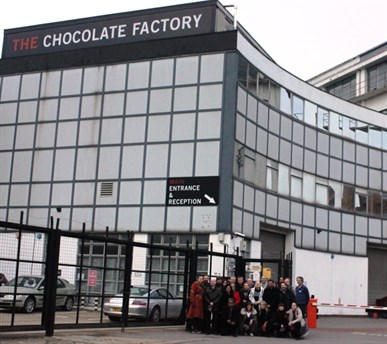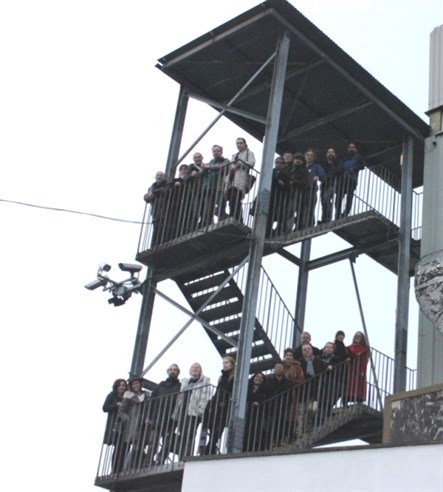 Between the 9th and the 11th January some thirty arts and cultural learning practitioners and stakeholders came together to launch the European Cultural Learning Network (ECLN) at the Chocolate Factory in Haringey, London.
Between the 9th and the 11th January some thirty arts and cultural learning practitioners and stakeholders came together to launch the European Cultural Learning Network (ECLN) at the Chocolate Factory in Haringey, London.
ECLN is in fact a new, three-year Network that has been funded by the European Union’s Lifelong Learning Programme.
Led by Collage Arts and coordinated by Rinova, it brings together partners who have worked together in projects such as ASPIRE and STEP with new partners who are collaborating together for the first time.
The new Network will start with 12 partners from 11 countries (together with a further 20 associate partners including associate partners from 3 additional counties).
Its founder members are:
- Collage Arts, UK
- Rinova, UK
- Foundation Arteria, Poland
- New Arts College, Netherlands
- VIA University College, Denmark
- Dimitra, Greece
- Association Prostor Plus, Croatia
- Kau Academy, Estonia
- Hope for Children, Cyprus
- Associazione Culturale Mulab, Italy
- LabCademy, Spain
The overall aim of ECLN is to build a ‘body of knowledge’ in relation to the European Vocational Education and Training dimension of Cultural Learning. In particular, its specific objectives are to:
- Identify the current qualification routes across Europe that are relevant to the field of Cultural Learning
- Review the type of jobs and occupations performed by Europe’s Cultural Learning Practitioners
- Develop new qualifications for Cultural Learning professionals
- Create a new web-based ‘Observatory’ to share information, practice, research, and expertise across the sector;
- Establish a new, membership-based European Association of Cultural Learning (EACL).
 By ‘Cultural Learning’ we refer to the teaching and learning of arts and culture in ‘non-formal’ environments, such as arts and cultural centres, creative industries business development programmes, community centres and localities, festivals, venues etc (i.e. outside of the ‘formal’ teaching in Universities, Colleges and Schools).
By ‘Cultural Learning’ we refer to the teaching and learning of arts and culture in ‘non-formal’ environments, such as arts and cultural centres, creative industries business development programmes, community centres and localities, festivals, venues etc (i.e. outside of the ‘formal’ teaching in Universities, Colleges and Schools).
This practice grew out of the Community Arts and Popular Culture movements of the 1960s and 1970s in the United States and Western Europe, which rejected the notion of the arts as ‘elitist’ and recognised the transformational qualities that learning and participating in arts and culture could have on individuals and communities.
Since then, many organisations across Europe have used artistic and cultural expression to develop communities and regenerate neighbourhoods; foster new forms of creative enterprise; generate creative ‘clusters’ and build social, educational and economic inclusion.
The ECLN aims to pull together the ‘knowledge base’ relating to the training and vocational issues faced by this diverse range of practitioners, and the organisations and contexts in which they work.
Over time, the ECLN aspires to extend the reach of the Network to incorporate all of those interested in the professional development needs of all of those who are involved in cultural learning, aiming to become a new co-operation in lifelong learning through arts and culture at the European level.

Pictured above: Delegates pose for photographs outside the Chocolate Factory in London at the launch of the ECLN between the 9th and 11th January 2013.

This project has been funded with support from the European Commission. This communication reflects the views only of the author, and the Commission cannot be held responsible for any use which may be made of the information contained therein.


